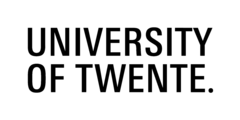Water Technology

Solving global water problems requires a multidisciplinary approach of knowledge and skills.
That is why the Wetsus Institute and three Dutch universities offer a joint degree in Water Technology. The Master's in Water Technology is a two-year programme offered jointly by Wageningen University, the University of Twente and the University of Groningen with education being provided at Wetsus, European Centre of Excellence for sustainable water technology, at the WaterCampus in Leeuwarden.
In the field of water technology, breakthrough technological developments are required. Not only to enable the export ambitions of the water sector but also to solve global threats and challenges in society. The main added value of the course lies in the multidisciplinary study of biotechnology and separation technology. Such a combined technological approach may offer a solution to global developments, within business and society, and have a worldwide impact on the demand for and use of water.
There are no official specialisations within the programme Water Technology. Students specialise themselves by doing a thesis within one of the research fields:
- Priority compounds
- Virus Control
- Applied water physics
- Desalination
- Concentrates
- Biofouling
- Advanced water treatment
- Algae
- Source Separated Sanitation
- Resource recovery
- Membrane processes and operation for wastewater treatment and reuse
- Sensoring:
- Protein from water
- Phosphate recovery
- Ground water technology
- Blue energy
- CO2 energy
Į magistro studijų programas gali stoti visi, baigę universitetą arba besimokantys paskutiniame kurse. Studijos kurias baigei ar tebesimokai turi būti panašios krypties kaip ir tos, į kurias nori stoti, kadangi priėmimas yra paremtas ECTS kreditų suderinamumu.
- ECTS kreditų išrašas - jei dar nesi baigęs aukštosios mokyklos, būtina prisegti ECTS kreditų išrašą, kuriame būtų matyti, kokius dalykus tu mokeisi bei kokius pažymius ir kiek kreditų už juos gavai. Kai siunti anketą paskutiniame kurse, diplomą reikia prisegti vėliau, kai tik jį gausi.
- Bakalauro diplomas – jei jau esi baigęs aukštąją mokyklą, išrašo nereikia, užtenka prie anketos prisegti savo Bakalauro diplomą.
SVARBU! Stojimo mokestis - universitetas taiko 100 EUR stojimo mokestį, kurį privalai susimokėti aplikuodamas į jį (kai atsiųsi stojimo anketą, tau bus paaiškinta kaip tai padaryti). ČIA gali rasti daugiau informacijos apie šį mokestį ir kodėl jis yra taikomas.
Anglų kalbos žinias gali patvirtinti vienu iš šių būdų:
- IELTS – 6.0
- TOEFL – 80
At least a BSc degree (or equivalent) in a field of science relevant to the specific programme selected
Good skills in mathematics and/or statistics
The study domain is becoming more and more relevant due to the urgent need for new technologies to meet the global water problems. Water technology for public drinking water production and sewer water treatment is a very large market. Further, the largest use of fresh water is for irrigation purposes.
The industrial water supply and industrial waste water treatment also represent a significant market. There is no question that business involved in water technology will grow tremendously. Besides this human capital is a basic condition to guarantee the success and continuity of the development of sustainable technologies and a European know-how economy in water technology. In many EU countries the lack of talented technological professionals is becoming an increasingly limiting factor. The program prepares students for a professional position in the broad area of water technology. Graduates have good national and international career prospects in business and research.
In these areas a wide variety of positions is op for graduates, including:
Consultant or manager at a development project
Designer of purification processes
R&D department of companies, e.g. Arcadis or Philips
PhD, starting a scientific career
Start-up company

